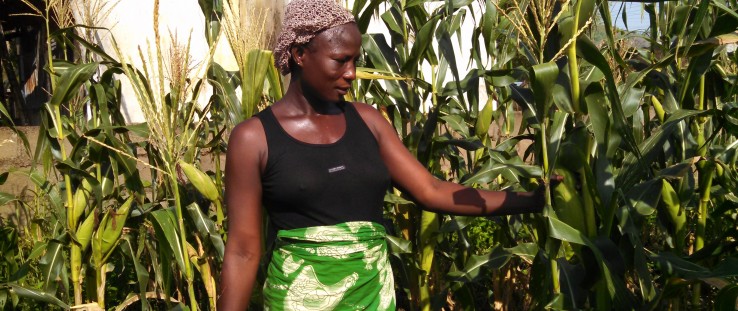 Mary Utsewa admires stalks of corn that eclipsed her in height. Thanks to a USAID donation, she recently harvested 1,000 kilograms to consume and sell.
AUN-API
Mary Utsewa admires stalks of corn that eclipsed her in height. Thanks to a USAID donation, she recently harvested 1,000 kilograms to consume and sell.
AUN-API
 Mary Utsewa admires stalks of corn that eclipsed her in height. Thanks to a USAID donation, she recently harvested 1,000 kilograms to consume and sell.
AUN-API
Mary Utsewa admires stalks of corn that eclipsed her in height. Thanks to a USAID donation, she recently harvested 1,000 kilograms to consume and sell.
AUN-API
Speeches Shim
Mary Utsewa gripped an ear of maize so large she could barely get her hand around it. Standing among bright green cornstalks swaying high above her head, she smiled and considered her good fortune. A farmer from Sukur district in northeast Nigeria, Utsewa was driven from her fields in 2013 and hadn’t grown a kernel since. Today she is a farmer again.
Utsewa, 38, and her family were among 6,000 farming households displaced by the Boko Haram terrorist organization to receive seeds and farming implements donated by USAID to help smallholder farmers return to their fields after suffering years as internally displaced persons (IDPs).
Utsewa’s family was among tens of thousands who were unable to produce for themselves and had no choice but to rely on humanitarian aid. Driven from the town of Fufore to the town of Magadali near the Nigeria-Cameroon border, Utsewa and her family faced the typical odyssey of the displaced over the course of three years. They found refuge with a family in a host community, became displaced again when their new community came under fire, and ended up in one of the dreaded IDP camps, where scores of people lived together in a dangerous, assistance-dependent environment.
Late in 2015, the family landed in Magadali. When Utsewa received the seeds from USAID in July 2016, she was allowed to plant and tend them after she was allotted a parcel of land from host community elders.
“No words can express my joy for this harvest,” Utsewa said in December. “From the community that lent me the land to grow this crop to the donation of the seed, I can’t believe it.”
With the harvest complete and 10 100-kilogram sacks full of high-quality maize, Utsewa and her family now have ready access to cash from local markets and other food staples, and more importantly, some hope for the future.
Seeds—including maize, sorghum, millet, groundnut and cowpea—were distributed to people who were, in many cases, forced from their homes or had their land and farming equipment destroyed by the festering Islamic insurrection in the region.
Two months after the planting, agronomists with USAID followed up with beneficiaries, and called on traditional leaders known as maiunguwas, village chiefs, religious leaders and officials of the U.S.-supported Adamawa Peace Initiative of the American University of Nigeria. What they found was encouraging.
Harvesting Hope
“My family ran from Boko Haram with just the shirts on our backs,” said Garba Abdullahi, a farmer from Fufore. “We left everything, but these seeds have helped me start my life again.”
USAID partners, including state and local government agencies, helped ensure distribution occurred ahead of this year’s planting season.
“We gave people farmland and give them instructions on how to use the seeds, and insist they not take them to market to sell,” said Malam Aminu Jauro, a community leader and local official in Fufore. “Providing the farmers food assistance as well ensured the majority of the seeds were planted.”
“Our evaluation showed that most of the beneficiary farmers were very satisfied with their crops,” said USAID partner agronomist Emmanuel Sangodele, who led the distribution. “Nearly four out of five farmers reported the quality of their crops was good, and the harvest this year alleviated their suffering.”
Most of the seeds went to the IDPs, but a substantial portion went to host families to help ease the economic and social strain on communities that accommodated thousands of displaced families, underscoring the importance of restoring both food and economic security to this troubled corner of Africa’s most populous nation.
Such small successes like this distribution program only begin to address the humanitarian crisis precipitated by the scorched earth tactics of the Boko Haram insurgency. The outfit is beaten but not broken and continues to wreak devastation as they gradually retreat deep into the jungle.
Through the Office of U.S. Foreign Disaster Assistance and Office of Food for Peace, USAID has also provided more than $301 million in humanitarian assistance to people living in the Lake Chad Basin since 2016, working with U.N. agencies and other partners.
In all, the 160 metric tons of seed donated to 6,000 households helped improve the region’s food supply, jump-start the stagnating economy and restore a sense of normalcy to battered communities after years on the brink of famine.
In 2017, USAID is continuing to transition from humanitarian relief to development assistance, and through Feed the Future—the U.S. Government’s global hunger and food security initiative—the Agency plans to continue its support for Nigerian agriculture, ahead of the next growing season.
As for Utsewa, the bounty of her harvest will both help her restore the life her family knew before the conflict and express gratitude toward her gracious hosts. “To me, it was a bumper crop,” she said.


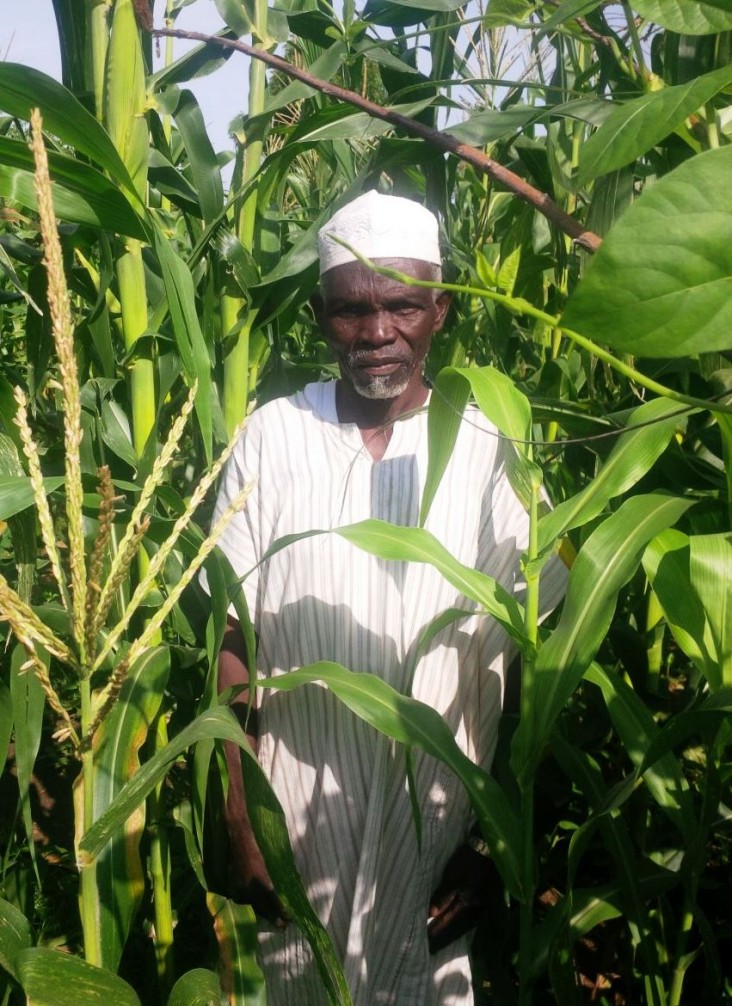
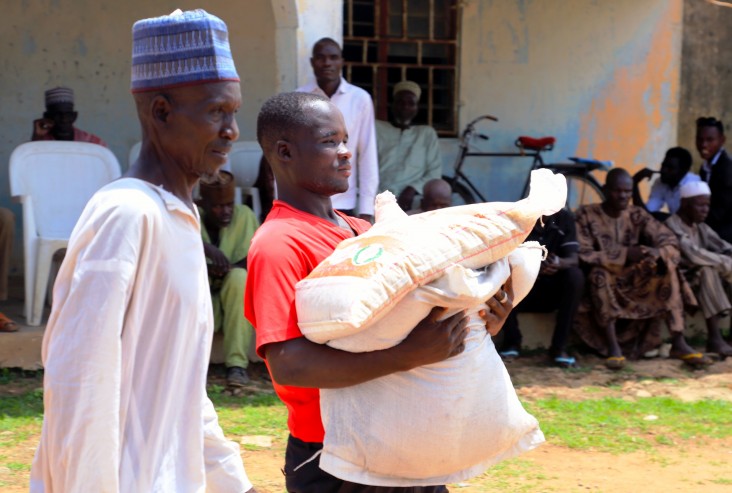
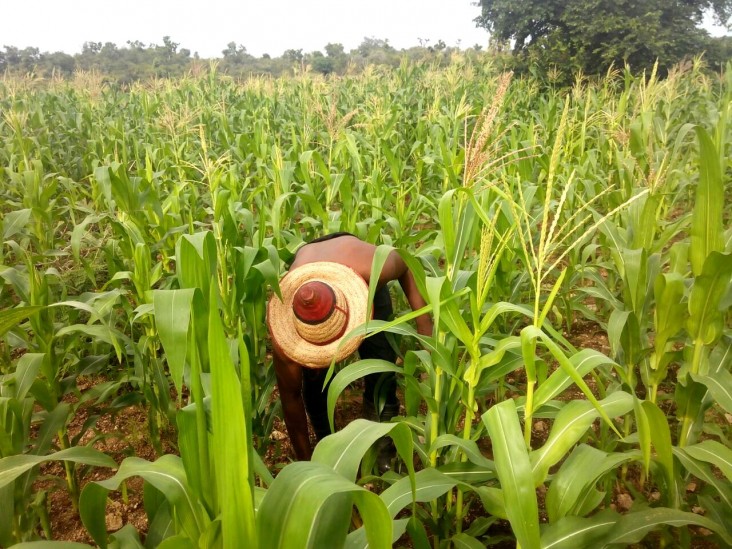
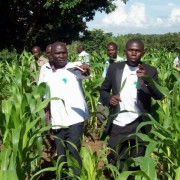
Comment
Make a general inquiry or suggest an improvement.